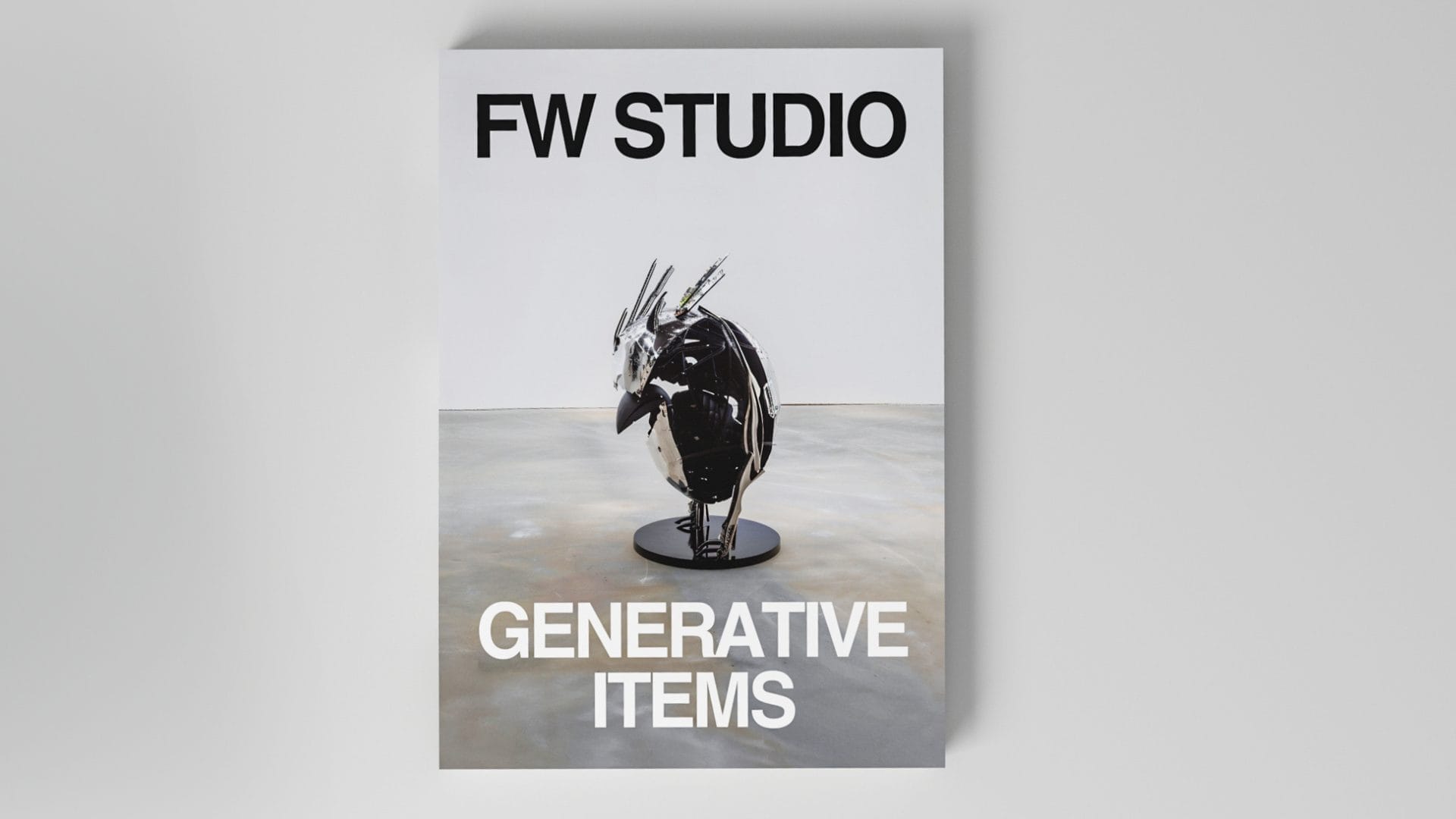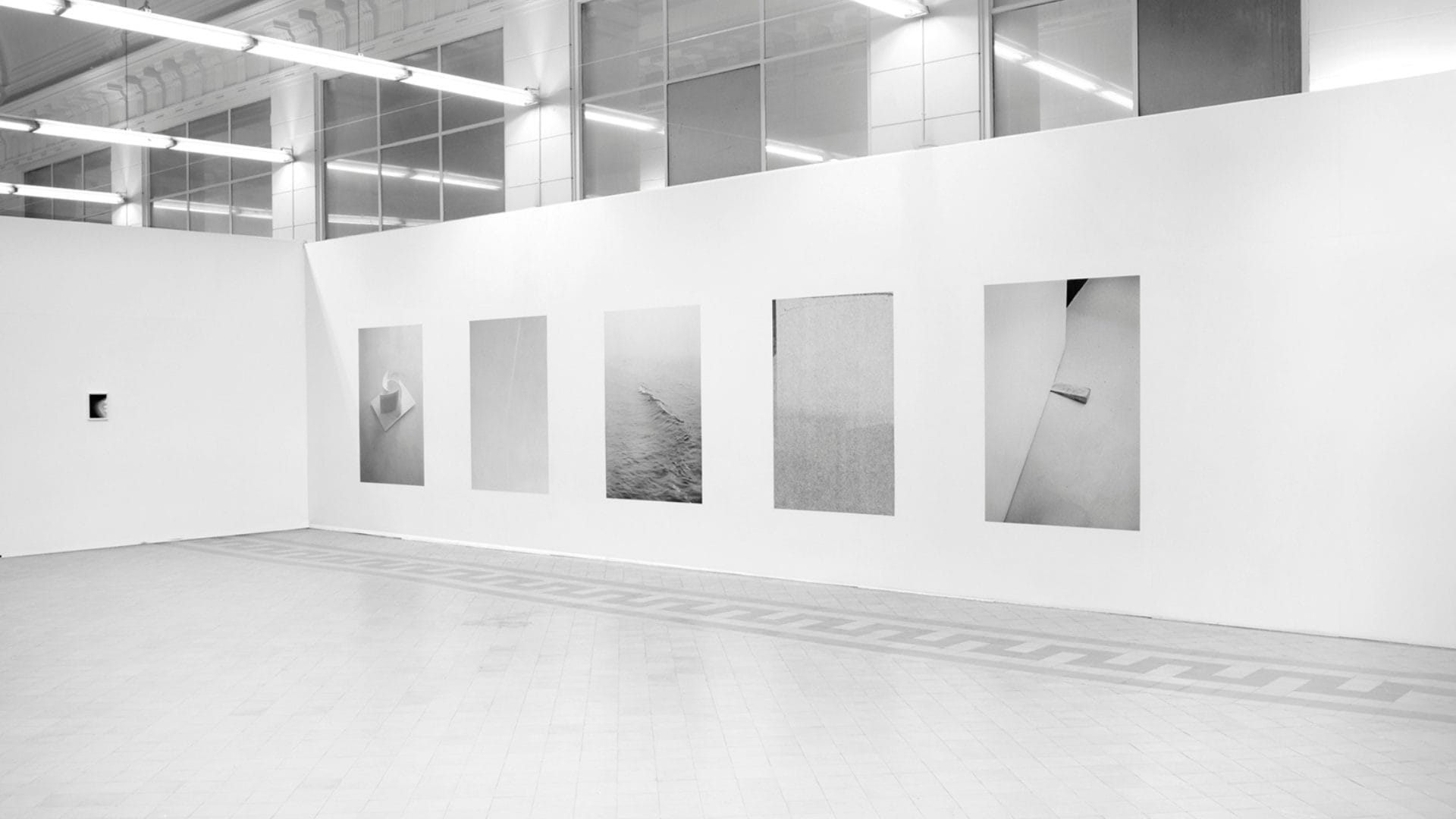
Fakewhale STUDIO: “GENERATIVE ITEMS”, BOOK PRESENTATION
We are pleased to announce the latest release from Fakewhale Studio, published by PRNTD, titled “GENERATIVE ITEMS.”
This project brings together the works in collaboration with fifteen artists, including: Camille Rouzaud, Christian Holze, Emmanuel Van Der Auwera, Erris Huigens, Huber Huber, Jorge Isla, Léo Fourdrinier, Lolo & Sosaku, Manor Grunewald, Manuel Fois, Mathias Pöschl, Mit Borrás, Oliver Hull, Patrick Bérubé, and Sasha Sime.
In “GENERATIVE ITEMS,” we explore the evolving dialogue between digital photography and generative artificial intelligence, opening new aesthetic and conceptual frontiers. Each artist contributed 5-6 photographs from their personal body of work, which were then processed by an algorithm designed to generate outputs inspired by the visual styles of the original pieces. This algorithm interprets each artist’s unique style in a guided manner, creating a bridge between human creativity and computational interpretation.

At the heart of this initiative lies not just the AI’s ability to produce new photographic works inspired by the artists’ styles, but the creative process that emerges from the interaction between human thought and algorithmic processing. Through a process of learning and transformation, our publication does not present something entirely new; rather, it introduces an aesthetic variation that blends the artist’s vision with the power of computational mechanics. The resulting images are therefore the outcome of a reciprocal contamination, a kind of “third space” that challenges conventional distinctions between the natural and artificial, between creation and reproduction, and between the original work and its generated output.
Together with Fakewhale Studio, we conceived this project as an experimental and interdisciplinary exploration. Here, artificial intelligence is not merely an auxiliary tool but a co-creative partner, actively collaborating with the artist at every step.
Each contribution represents a unique interaction between the artist and the algorithm, reflecting the stylistic and conceptual nuances of the original work while simultaneously opening up new visual possibilities, offering new solutions and insights that culminate in one or more digital outputs.
In this publication, human intervention remains crucial, particularly during both the initial and final stages of aesthetic selection, where decisions are made about which images will be included in the final result.

“GENERATIVE ITEMS” is more than a collection of artworks; it is closer to a manifesto of what can be achieved through collaboration between human creativity and algorithms. Each output selected for this edition not only represents the artist’s work in some way but also serves as a testament to the shared journey with Fakewhale Studio, embodying our active intention to stimulate critical reflection on the future of creativity and the role that AI, and technology in general, will play in redefining the boundaries of contemporary art.
This project marks both a symbolic and operational starting point for a series of future initiatives dedicated to exploring and enhancing the expressive potential of Fakewhale Studio.
Our work takes place within a rapidly evolving cultural landscape where technology is profoundly transforming both the means of expression and the very notions of creativity and authorship. In this sense, the generative images that will increasingly emerge in visual communication and art are neither entirely artificial nor entirely human: they embody a visual hybrid that challenges traditional notions of creation. With this project, we aim to consciously take part in this movement, leading from the forefront.
“GENERATIVE ITEMS” will be unveiled at an event in our space in Lugano, Switzerland, this Wednesday, October 23rd. The content of the book will also be published on the website dedicated to Fakewhale Studio projects.
Through this publication, we hope to contribute to a deeper and more integrated understanding of artificial intelligence as an integral part of contemporary visual culture. We are excited to share this work with our community and all the artists involved, as it represents a critical platform for reflecting on the future of creativity and the aesthetic and cultural implications of emerging technologies.



fakewhale
Founded in 2021, Fakewhale advocates the digital art market's evolution. Viewing NFT technology as a container for art, and leveraging the expansive scope of digital culture, Fakewhale strives to shape a new ecosystem in which art and technology become the starting point, rather than the final destination.
You may also like
Fakewhale in dialogue with Michel Mazzoni
Michel Mazzoni’s artistic practice is an intricate exploration of photography as both a medium a
The Saturation of Vision: Apathy in the Age of Scrolling
It’s no longer a matter of visibility. The images are already here. Everywhere. At every moment.We
Antoine Félix Bürcher, Pissing In a River, at Temple Gallery, New York.
“Pissing In a River” by Antoine Félix Bürcher, curated by Jianrui Li, at Temple Galler




